Find Help
More Items From Ergsy search
-
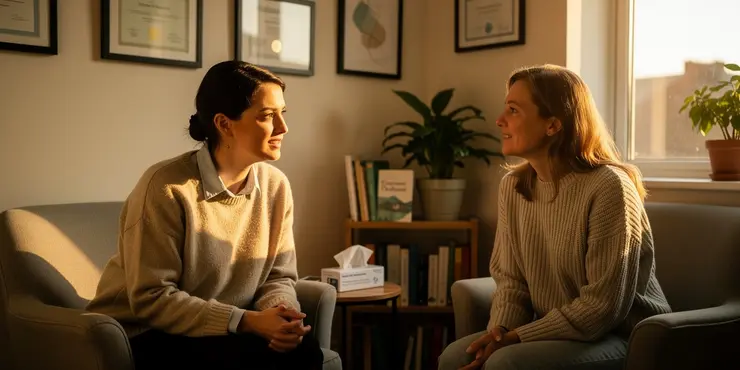
Talking therapy 'should be offered before pills' for people with insomnia | NHS Behind the Headlines
Relevance: 100%
-
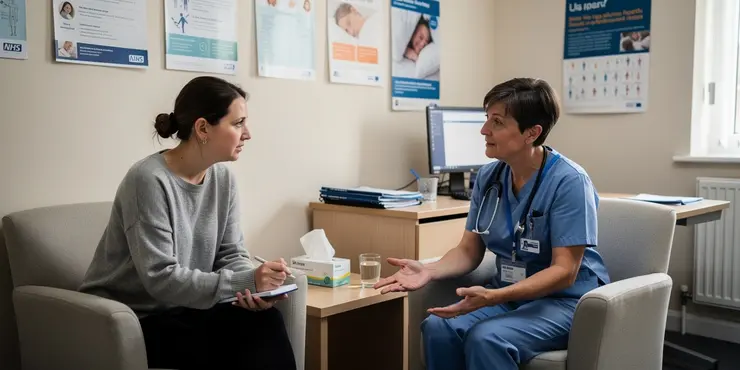
BSL - Insomnia self-help tips
Relevance: 64%
-

BSL - Treatments for insomnia
Relevance: 64%
-
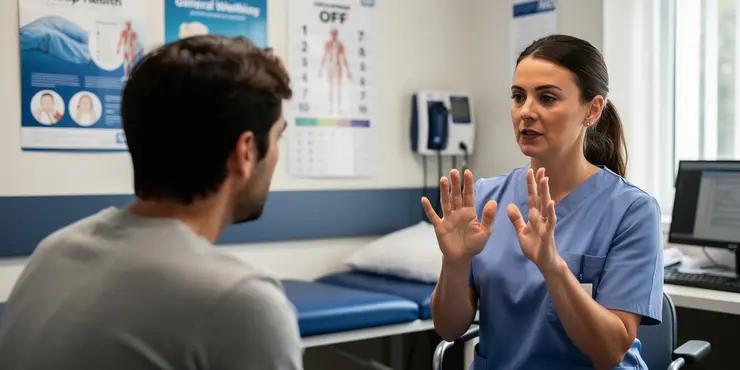
BSL - Insomnia introduction
Relevance: 59%
-
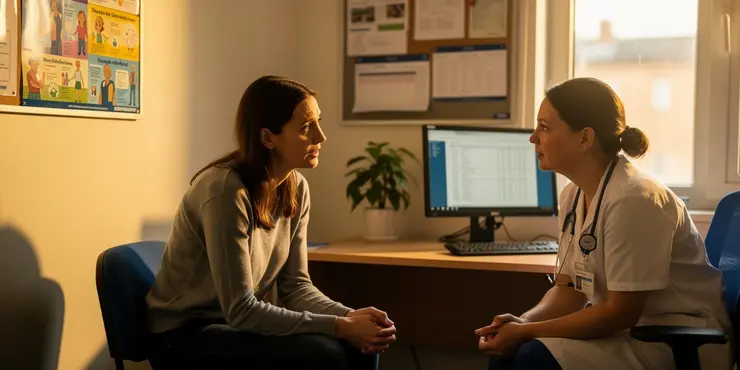
BSL - Causes of insomnia
Relevance: 55%
-
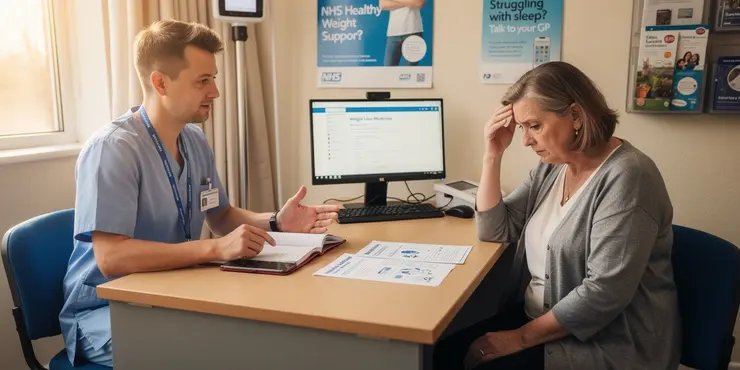
Is insomnia a common side effect of weight loss drugs?
Relevance: 48%
-
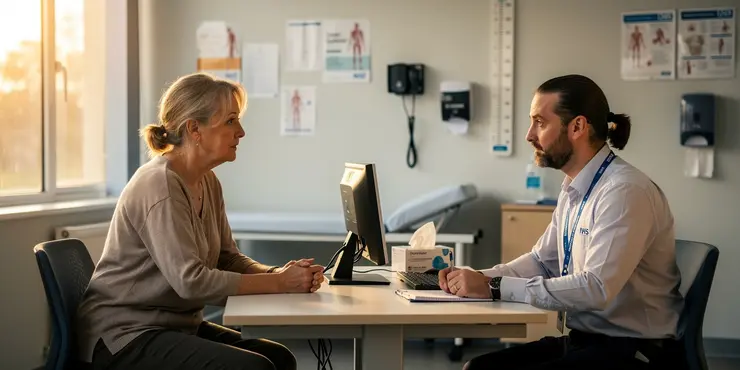
Talking menopause with your GP
Relevance: 48%
-
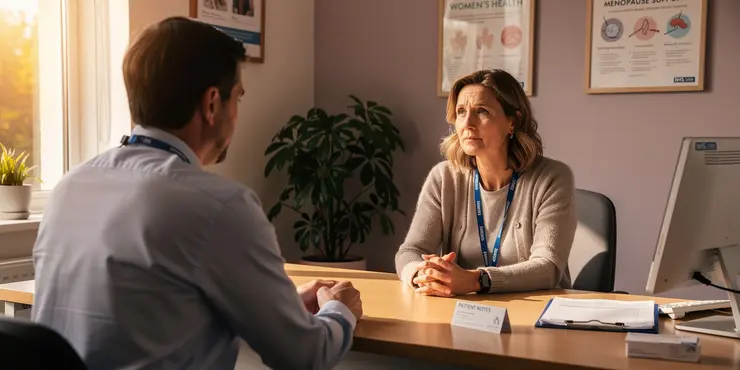
Talking menopause with your GP
Relevance: 45%
-

Small Talk Saves Lives
Relevance: 44%
-
Talking about self-harm | NHS
Relevance: 42%
-
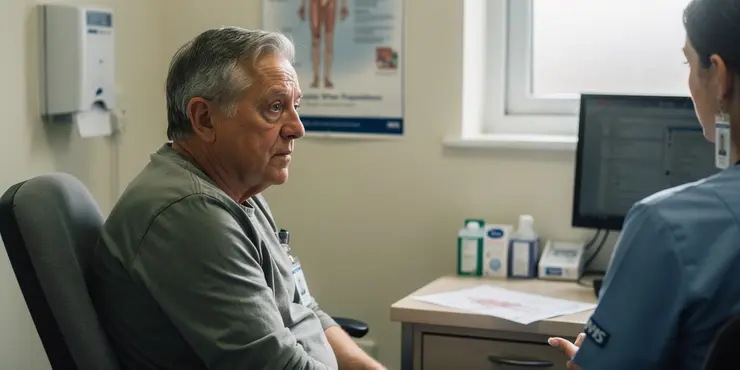
Hormone Therapy for prostate cancer
Relevance: 35%
-
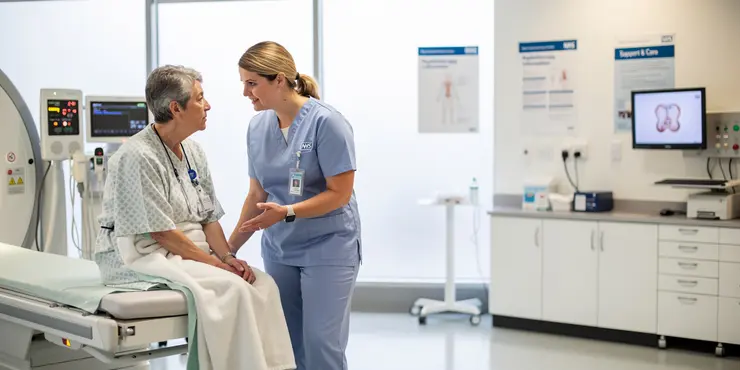
What is radiation therapy?
Relevance: 35%
-
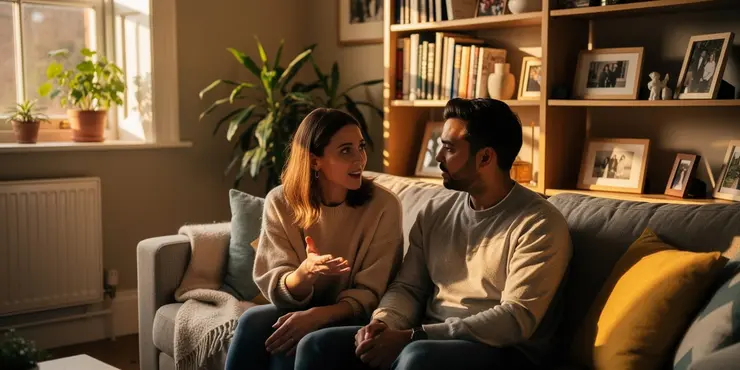
How do I talk to my partner about how I’m feeling?
Relevance: 35%
-
How important is it to talk to children about their online interactions?
Relevance: 33%
-
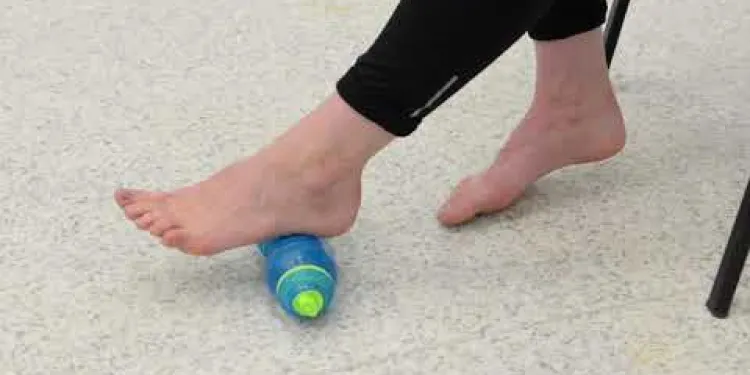
Plantar Fascia Cold Therapy
Relevance: 32%
-
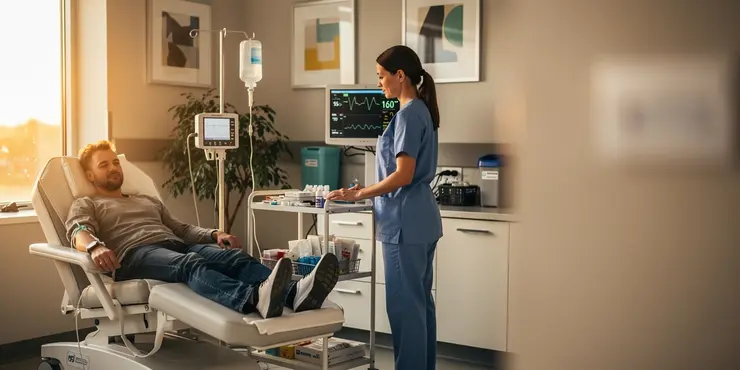
What is ketamine infusion therapy?
Relevance: 32%
-
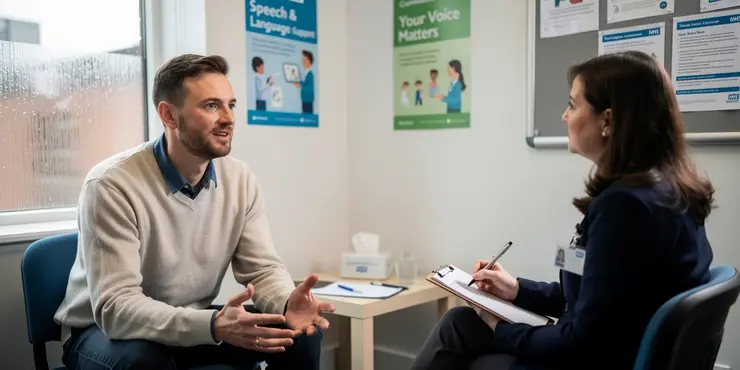
Adam's story on stammering - Therapy
Relevance: 32%
-
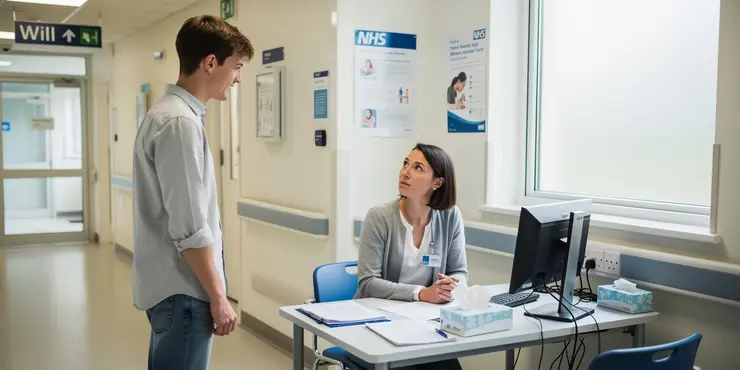
Will's story on having therapy - Stammering
Relevance: 32%
-
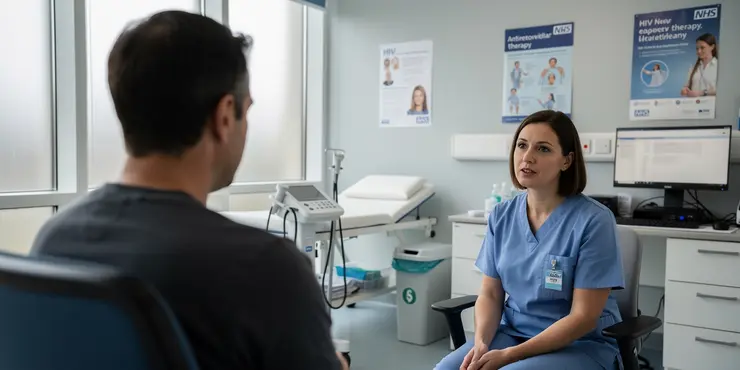
What is antiretroviral therapy (ART)?
Relevance: 32%
-
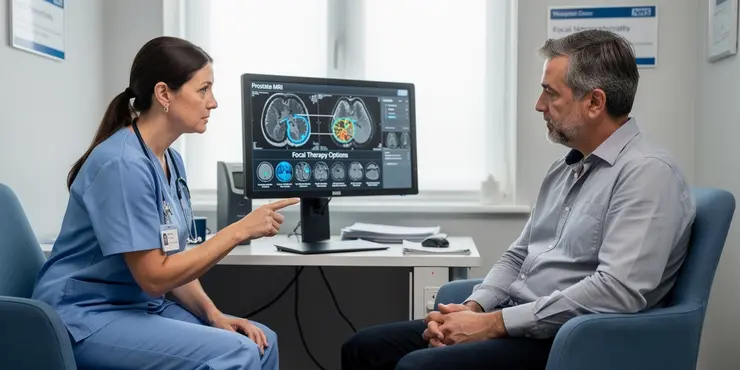
Is focal therapy an option for prostate cancer?
Relevance: 31%
-

Can therapy help individuals with ADHD?
Relevance: 31%
-

What are some common therapies for autism?
Relevance: 31%
-
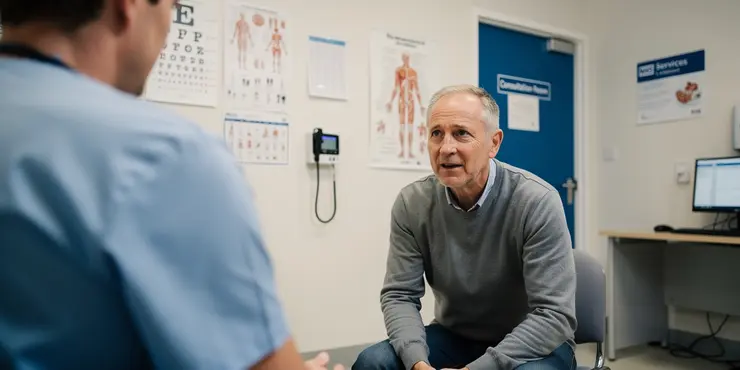
Can prostate cancer be treated with targeted therapy?
Relevance: 30%
-
What is the role of therapy in treating eating disorders?
Relevance: 30%
-

Can Music Therapy Be the Key to Reducing Anxiety?
Relevance: 30%
-
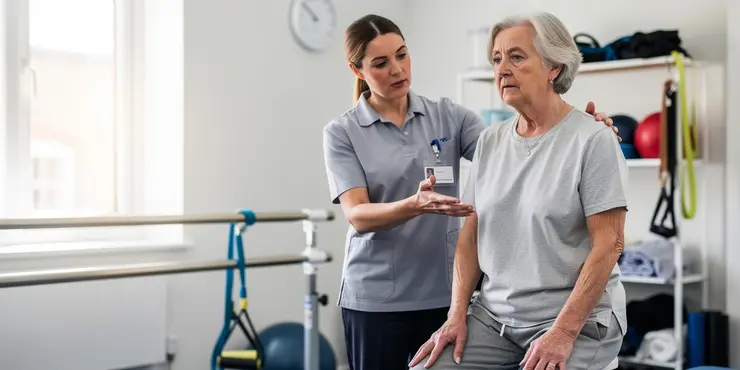
Will I need physical therapy after a hip replacement?
Relevance: 30%
-
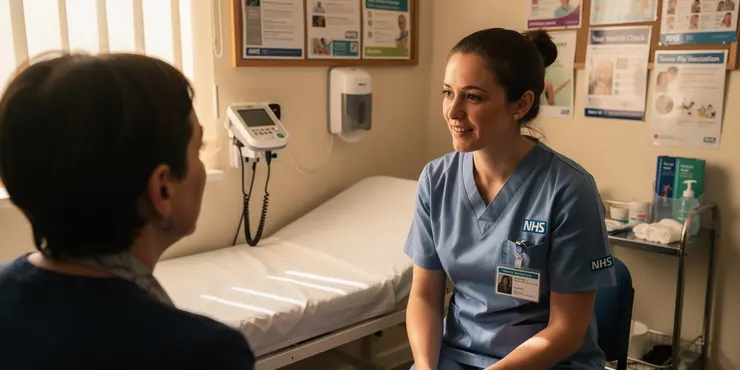
Can I talk to visitors using a Ring Doorbell Camera?
Relevance: 29%
-
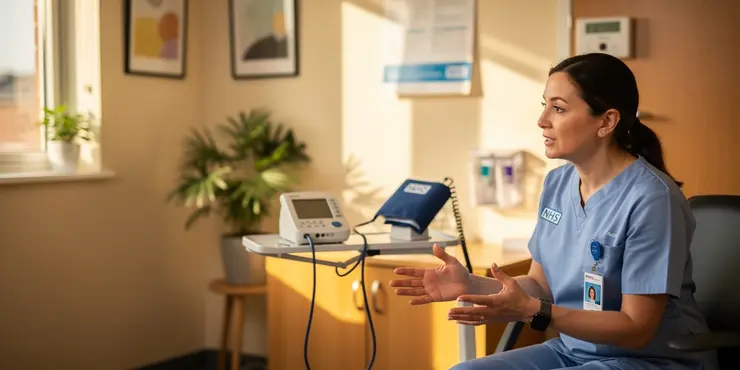
Can Paillon treatment be used alongside traditional therapies?
Relevance: 28%
-
Is hormone replacement therapy safe for menopause masking?
Relevance: 28%
-
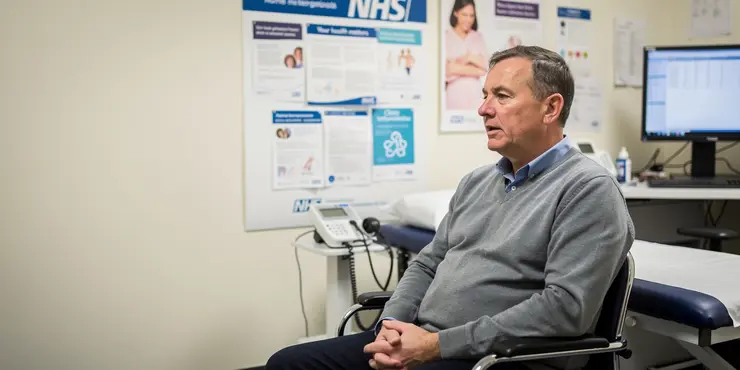
How does hormone therapy help in treating prostate cancer?
Relevance: 27%
-
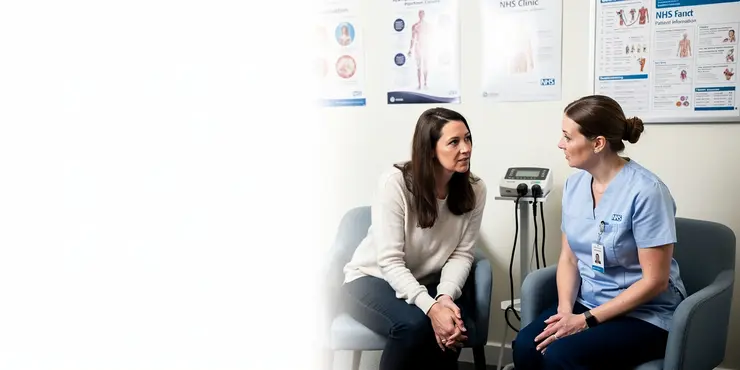
Let's Talk About Menopause - The Queen Elizabeth Hospital King's Lynn NHS Foundation Trust
Relevance: 27%
-
How does cognitive-behavioral therapy help with health-related anxiety?
Relevance: 26%
-
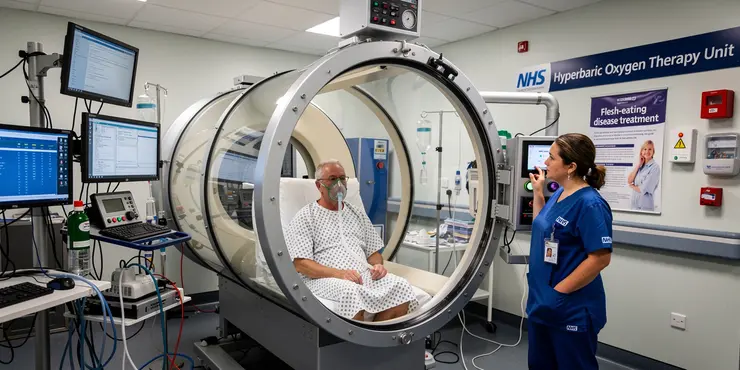
What is the role of hyperbaric oxygen therapy in treating flesh-eating disease?
Relevance: 26%
-
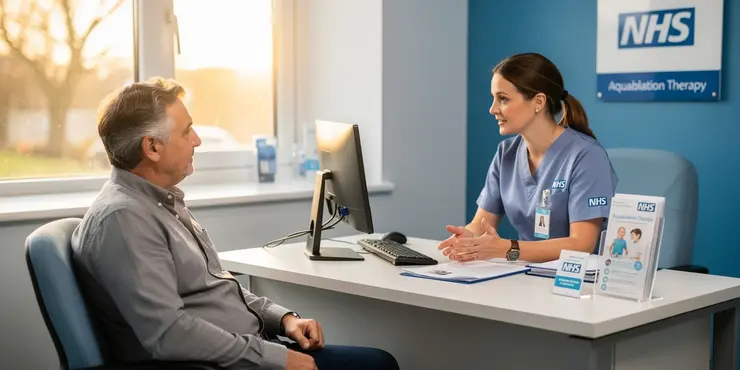
Aquablation Therapy - Minimally Invasive Enlarged Prostate Treatment - Ramsay Health Care UK
Relevance: 26%
-

Can physical therapy help whiplash?
Relevance: 25%
-
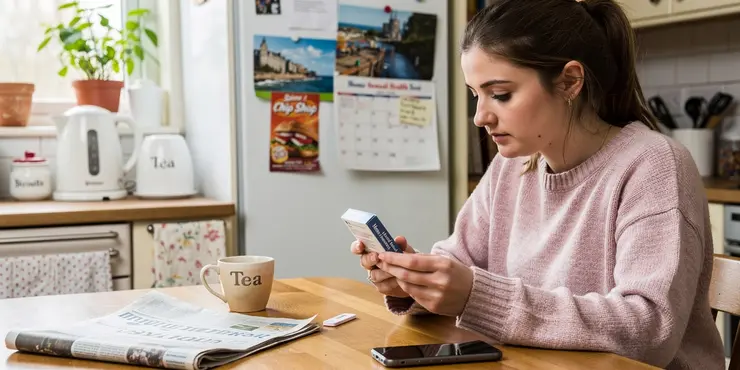
Let's Talk Sexual Health - Home Self Testing Kits
Relevance: 25%
-
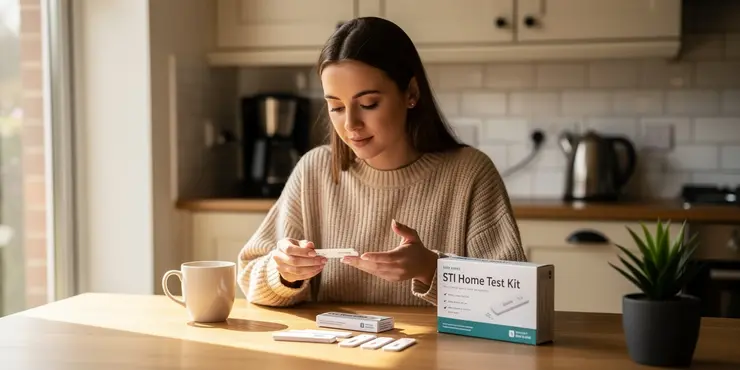
Let's Talk Sexual Health - Home Self Testing Kits
Relevance: 25%
-
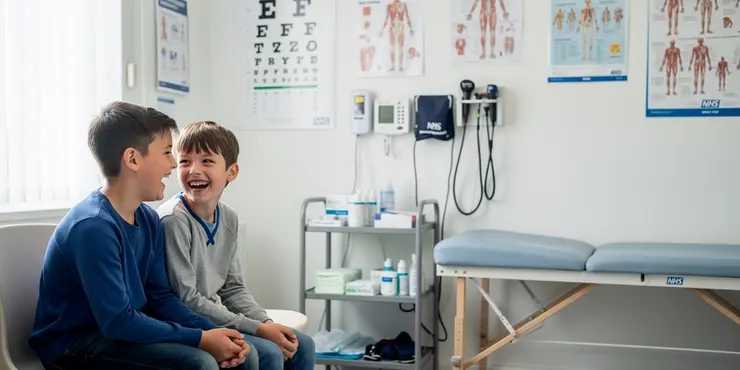
Charlie and Rupert on their journey with Spinal Muscular Atrophy and Zolgensma Gene Therapy
Relevance: 25%
-
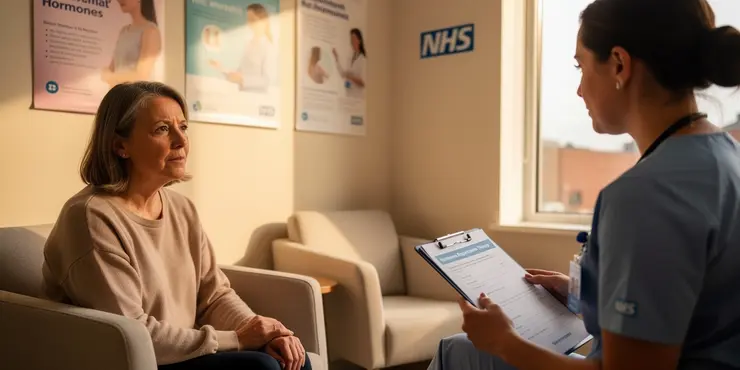
Can hormone replacement therapy (HRT) impact dementia risk?
Relevance: 24%
-
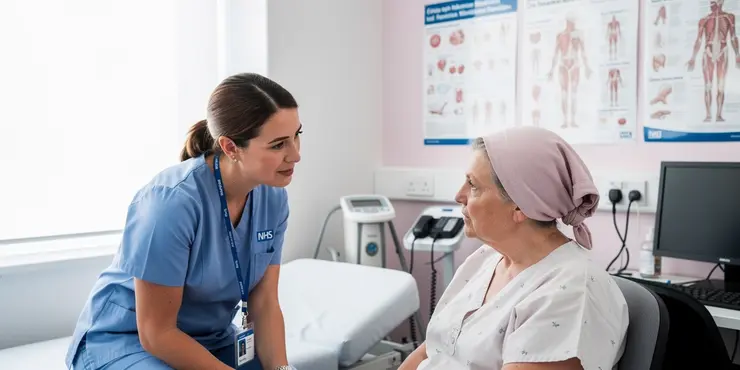
Information for all cancer patients receiving Chemotherapy or Targeted Therapy at HDFT.
Relevance: 24%
Talking Therapy 'Should be Offered Before Pills' for People with Insomnia | NHS Behind the Headlines
Introduction to Insomnia and Current Treatments
Insomnia, a common sleep disorder affecting millions in the United Kingdom, disrupts the ability to fall or stay asleep. Traditional treatment approaches often involve medications, such as sleeping pills, to alleviate symptoms temporarily. However, reliance on these medications can lead to dependency and other health concerns. The National Health Service (NHS) has begun advocating for non-pharmaceutical interventions as a first line of treatment.Benefits of Talking Therapies for Insomnia
Talking therapies, particularly Cognitive Behavioral Therapy for Insomnia (CBT-I), have shown significant efficacy in treating insomnia. CBT-I helps patients understand and alter the thoughts and behaviors that contribute to sleep problems. Unlike medication, which typically addresses symptoms temporarily, CBT-I targets the underlying causes, leading to more sustainable improvements in sleep quality. Studies demonstrate that individuals undergoing CBT-I often experiences longer-lasting relief compared to those who solely rely on medication.Why Talking Therapy Should Be Prioritized
Offering talking therapy before prescribing pills aligns with the NHS's broader commitment to holistic and sustainable healthcare. Medications for insomnia, while effective in the short-term, can cause side effects such as daytime drowsiness, dizziness, and in some cases, dependency. Moreover, they often do not address the root causes of insomnia, leading to recurring issues once the medication is discontinued. By prioritizing talking therapies, healthcare providers encourage patients to develop healthier sleep habits and coping mechanisms, ultimately fostering long-term well-being.Access to Talking Therapies in the UK
The NHS is working to improve access to talking therapies across the UK. Initiatives such as the Improving Access to Psychological Therapies (IAPT) program aim to make these services more widely available. Patients can often self-refer or be referred by their GP to receive talking therapy. The increased emphasis on such therapies is part of a broader strategy to reduce over-reliance on medication and promote mental health resilience among UK citizens.Conclusion
For individuals struggling with insomnia, talking therapies like CBT-I offer a promising alternative to medication. By addressing the root causes of sleep disturbances and fostering healthier sleep patterns, these therapies provide a more sustainable solution. The NHS's recommendation to offer talking therapy before pills reflects a commitment to comprehensive, long-term healthcare. Individuals experiencing insomnia are encouraged to discuss these options with their healthcare providers, fostering a shift towards more effective and enduring treatments.Talking Therapy Before Pills for Sleep Troubles
About Sleep Problems and How They are Treated Now
Insomnia is when you have trouble falling or staying asleep. Lots of people in the UK have this problem. Usually, doctors give people pills to help them sleep. But these pills can cause other problems and make you depend on them. The NHS wants people to try talking therapies first instead of pills.How Talking Therapies Help with Sleep Problems
Talking therapies, like CBT-I, are good for helping with sleep problems. CBT-I helps you change thoughts and habits that make it hard to sleep. Pills just help for a short time, but CBT-I can fix the actual problem. People who use CBT-I can sleep better for a longer time than those who only use pills.Why Talking Therapy is Important
The NHS believes using talking therapy first is better for your health. Sleeping pills can make you sleepy during the day and dizzy. Pills don’t fix the real problem, so you might have sleep troubles again. Talking therapy helps you learn better sleep habits, so you feel well for a long time.Getting Talking Therapies in the UK
The NHS wants more people to have access to talking therapies. Programs like IAPT help make these services easier to access. You can ask your doctor or refer yourself for talking therapy. The NHS wants people to depend less on medicine and focus more on mental health.Summary
If you have trouble sleeping, talking therapies like CBT-I can help more than pills. They find and fix the real problem of bad sleep. The NHS suggests trying talking therapy before using pills to help with sleep problems. Talk to your doctor about these options for better and lasting help.Frequently Asked Questions
What is the main recommendation regarding insomnia treatment?
The main recommendation is that talking therapy, specifically cognitive behavioural therapy for insomnia (CBT-I), should be offered before medication to treat people with insomnia.
What is CBT-I?
CBT-I stands for Cognitive Behavioural Therapy for Insomnia, a type of talking therapy designed to help people develop good sleep habits and overcome sleep-related issues.
Why is talking therapy preferred over pills for treating insomnia?
Talking therapy is preferred because it addresses the root causes of insomnia and focuses on long-term solutions, whereas medication may provide only short-term relief and can have side effects.
Is medication for insomnia completely ruled out?
No, medication is not completely ruled out, but it is recommended to try talking therapy first. Medication can be considered if therapy is not effective or suitable for the individual.
How effective is CBT-I in treating insomnia?
Studies have shown that CBT-I is highly effective in treating insomnia, with many patients experiencing significant improvement in their sleep patterns and overall quality of life.
Can the NHS provide CBT-I?
Yes, CBT-I is available on the NHS, although availability can vary depending on the area. Patients may need to be referred by their GP.
What are the main components of CBT-I?
The main components of CBT-I include sleep hygiene education, stimulus control therapy, sleep restriction therapy, relaxation techniques, and cognitive therapy.
Are there any side effects of CBT-I?
CBT-I is generally considered safe with few side effects. Some individuals may experience initial discomfort as they adjust their sleep patterns, but these tend to be temporary.
What is sleep hygiene?
Sleep hygiene involves practices and habits that are conducive to sleeping well, such as maintaining a regular sleep schedule, creating a comfortable sleep environment, and avoiding stimulants before bedtime.
How long does CBT-I treatment typically last?
CBT-I treatment usually lasts for about 6 to 8 sessions, but this can vary depending on the individual’s needs and progress.
Can CBT-I be accessed online?
Yes, there are online CBT-I programs available which can be a convenient option for those unable to attend in-person sessions.
Who can benefit from CBT-I?
Anyone suffering from chronic insomnia may benefit from CBT-I, regardless of age or background. It is particularly useful for individuals looking to find a long-term solution without relying on medication.
Is CBT-I covered by insurance or the NHS?
CBT-I may be covered by the NHS or private health insurance, but availability and coverage can vary. It's important to check with your provider for details.
How do I know if CBT-I is right for me?
A healthcare professional can help determine if CBT-I is suitable for you based on an assessment of your sleep issues and overall health.
Can CBT-I be combined with other treatments?
Yes, CBT-I can sometimes be combined with medication or other treatments. A healthcare provider can offer guidance on the best approach for your situation.
What is the best way to help someone who cannot sleep well?
We suggest talking therapy for people who have trouble sleeping. This is called cognitive behavioural therapy for insomnia, or CBT-I. Try this before using sleep medicine.
What is CBT-I?
CBT-I is a way to help people sleep better. It stands for Cognitive Behavioral Therapy for Insomnia. It's a talking therapy that helps you change how you think and what you do so you can sleep well.
If reading is hard, you can ask someone to read this with you. You can also use audiobooks or apps that read out loud to help you understand better.
CBT-I means Cognitive Behavioural Therapy for Insomnia. It is a kind of talking treatment. It helps people learn good sleep habits and helps with sleep problems.
Why is talking with a therapist better than taking pills for sleep problems?
Some people have trouble sleeping. This is called insomnia.
Talking with a therapist can help. It is often better than taking pills. Here is why:
- Talking can help you find out why you can't sleep.
- It can help you learn new ways to relax.
- Therapists can teach you tips for better sleep.
- It is safe and does not have side effects like pills can.
- It helps you sleep better for a long time.
If you have trouble sleeping, you might want to try talking to a therapist. It can help you feel better and sleep well.
Talking therapy is a good choice because it helps find out why you can't sleep and helps fix it for a long time. Medicine might help you sleep for a little while but can have bad side effects.
Can medicine help with trouble sleeping?
No, medicine is not completely off the table. But it is better to try talking therapy first. You can think about using medicine if therapy does not help or is not good for you.
How well does CBT-I help with sleeping problems?
CBT-I is a type of talking treatment. It helps people who have trouble sleeping.
CBT-I helps you change thoughts and actions that stop you from sleeping well.
It works for many people and helps them sleep better.
To get help, you can talk to a counselor or therapist who knows CBT-I.
Techniques like relaxation and setting a sleep schedule can also help.
Research shows that CBT-I helps people with trouble sleeping. Many people sleep better and feel happier with CBT-I.
Can the NHS give help for sleep problems?
Yes, you can get CBT-I on the NHS. But it might not be everywhere. You might need to ask your doctor to help you get it.
What are the main parts of CBT-I?
CBT-I helps people sleep better. It has a few important parts:
- Sleep Education: Learn about sleep and why it is important.
- Sleep Habits: Help to make good bedtime routines.
- Relaxation: Learn ways to relax your mind before bed.
- Changing Thoughts: Talk about and change thoughts that stop you from sleeping well.
- Keeping Track: Write down how you sleep in a sleep diary.
It is helpful to use images, simple charts, or apps to keep track of your sleep and bedtime routine.
The main parts of CBT-I are learning about good sleep habits, controlling bedtime routines, limiting time in bed, using relaxation methods, and changing how you think about sleep.
Does CBT-I have any side effects?
CBT-I stands for Cognitive Behavioral Therapy for Insomnia. It is a way to help people sleep better.
CBT-I is safe and does not usually have bad side effects.
Sometimes, people may find it hard to sleep in the beginning. This is normal and will get better with time.
If you feel worried, talk to your doctor. They can help you feel better.
Here are some helpful tools:
- Keep a sleep diary. Write down when you go to bed and wake up.
- Try relaxing exercises, like deep breathing.
- Listen to calm music before bed.
CBT-I is usually safe and doesn't have many side effects. Some people might feel uncomfortable at first when they change how they sleep, but this feeling usually goes away soon.
What is sleep hygiene?
Sleep hygiene means good sleep habits. Good habits help you sleep better. Here is how you can have good sleep:
- Go to bed at the same time every night.
- Wake up at the same time every morning.
- Keep your bedroom dark and quiet.
- Avoid screens before bed, like phones or TV.
- Do something relaxing before you sleep, like reading a book or listening to calm music.
Good sleep makes you feel happy and healthy. You can also ask someone you trust for help with your sleep.
Good sleep habits help you sleep better. Here are some tips:
- Go to bed and wake up at the same time every day.
- Make your bedroom comfy. Keep it dark and quiet.
- Don't drink coffee or eat sugary snacks before bedtime.
Try using a night light or listening to calming music if it helps you relax.
How long does CBT-I treatment usually take?
CBT-I treatment usually takes about 6 to 8 meetings. But sometimes it can be more or less. It depends on how each person is doing.
Can you get CBT-I on the computer?
Yes, you can! There are programs on the computer that help with CBT-I. These programs can teach you how to sleep better.
What can help you use these programs?
- Ask a helper: Someone else can help you understand the computer program.
- Use a simple guide: Find a step-by-step guide to help you.
- Speak to text: You can talk, and the computer will type it for you.
Yes, you can do CBT-I on the computer. This is good if you can't go to a real-life class.
Who can get help from CBT-I?
CBT-I is a special kind of talking therapy. It helps people who have trouble sleeping. If you have a hard time falling asleep or staying asleep, CBT-I might help you. Many people who have sleep problems feel better with CBT-I.
Some tools that can help you with CBT-I are:
- Keeping a sleep diary: Write down when you go to bed and wake up.
- Relaxation exercises: Take deep breaths or listen to calm music before bed.
- Bedtime routine: Do the same relaxing things before bed each night.
If you have trouble sleeping for a long time, CBT-I can help you. It doesn't matter how old you are or where you come from. CBT-I is good if you want to fix your sleep without taking medicine.
Will my insurance or the NHS pay for CBT-I?
CBT-I might be paid for by the NHS or private health insurance. But this can be different for everyone. You should ask your doctor or insurance company for more information.
Is CBT-I the right choice for me?
CBT-I stands for Cognitive Behavioral Therapy for Insomnia. It helps people who have trouble sleeping.
Here is how you can decide if it is good for you:
- Do you have trouble falling asleep?
- Do you wake up often during the night?
- Are you tired during the day?
- Have you tried other ways and still cannot sleep well?
If you said "yes" to many of these, CBT-I might help you. Talk to a doctor or therapist to learn more.
Tools to help:
- Keep a sleep diary: Write down when you go to bed, wake up, and how you feel.
- Use relaxation exercises: Try deep breathing or calming apps.
A doctor or nurse can help you find out if CBT-I is right for you. They will look at how you sleep and your health to decide.
Can you use CBT-I with other treatments?
Yes, you can use CBT-I with other treatments.
CBT-I can help with sleep problems.
It is okay to use CBT-I with medicine or other help from a doctor.
Always talk to your doctor before starting new treatments.
Yes, sometimes CBT-I can be used with medicine or other treatments. A doctor can help you find the best plan for you.
Useful Links
This website offers general information and is not a substitute for professional advice.
Always seek guidance from qualified professionals.
If you have any medical concerns or need urgent help, contact a healthcare professional or emergency services immediately.
Some of this content was generated with AI assistance. We’ve done our best to keep it accurate, helpful, and human-friendly.
- Ergsy carfully checks the information in the videos we provide here.
- Videos shown by Youtube after a video has completed, have NOT been reviewed by ERGSY.
- To view, click the arrow in centre of video.
- Most of the videos you find here will have subtitles and/or closed captions available.
- You may need to turn these on, and choose your preferred language.
- Go to the video you'd like to watch.
- If closed captions (CC) are available, settings will be visible on the bottom right of the video player.
- To turn on Captions, click settings .
- To turn off Captions, click settings again.
More Items From Ergsy search
-

Talking therapy 'should be offered before pills' for people with insomnia | NHS Behind the Headlines
Relevance: 100%
-

BSL - Insomnia self-help tips
Relevance: 64%
-

BSL - Treatments for insomnia
Relevance: 64%
-

BSL - Insomnia introduction
Relevance: 59%
-

BSL - Causes of insomnia
Relevance: 55%
-

Is insomnia a common side effect of weight loss drugs?
Relevance: 48%
-

Talking menopause with your GP
Relevance: 48%
-

Talking menopause with your GP
Relevance: 45%
-

Small Talk Saves Lives
Relevance: 44%
-
Talking about self-harm | NHS
Relevance: 42%
-

Hormone Therapy for prostate cancer
Relevance: 35%
-

What is radiation therapy?
Relevance: 35%
-

How do I talk to my partner about how I’m feeling?
Relevance: 35%
-
How important is it to talk to children about their online interactions?
Relevance: 33%
-

Plantar Fascia Cold Therapy
Relevance: 32%
-

What is ketamine infusion therapy?
Relevance: 32%
-

Adam's story on stammering - Therapy
Relevance: 32%
-

Will's story on having therapy - Stammering
Relevance: 32%
-

What is antiretroviral therapy (ART)?
Relevance: 32%
-

Is focal therapy an option for prostate cancer?
Relevance: 31%
-

Can therapy help individuals with ADHD?
Relevance: 31%
-

What are some common therapies for autism?
Relevance: 31%
-

Can prostate cancer be treated with targeted therapy?
Relevance: 30%
-
What is the role of therapy in treating eating disorders?
Relevance: 30%
-

Can Music Therapy Be the Key to Reducing Anxiety?
Relevance: 30%
-

Will I need physical therapy after a hip replacement?
Relevance: 30%
-

Can I talk to visitors using a Ring Doorbell Camera?
Relevance: 29%
-

Can Paillon treatment be used alongside traditional therapies?
Relevance: 28%
-
Is hormone replacement therapy safe for menopause masking?
Relevance: 28%
-

How does hormone therapy help in treating prostate cancer?
Relevance: 27%
-

Let's Talk About Menopause - The Queen Elizabeth Hospital King's Lynn NHS Foundation Trust
Relevance: 27%
-
How does cognitive-behavioral therapy help with health-related anxiety?
Relevance: 26%
-

What is the role of hyperbaric oxygen therapy in treating flesh-eating disease?
Relevance: 26%
-

Aquablation Therapy - Minimally Invasive Enlarged Prostate Treatment - Ramsay Health Care UK
Relevance: 26%
-

Can physical therapy help whiplash?
Relevance: 25%
-

Let's Talk Sexual Health - Home Self Testing Kits
Relevance: 25%
-

Let's Talk Sexual Health - Home Self Testing Kits
Relevance: 25%
-

Charlie and Rupert on their journey with Spinal Muscular Atrophy and Zolgensma Gene Therapy
Relevance: 25%
-

Can hormone replacement therapy (HRT) impact dementia risk?
Relevance: 24%
-

Information for all cancer patients receiving Chemotherapy or Targeted Therapy at HDFT.
Relevance: 24%


